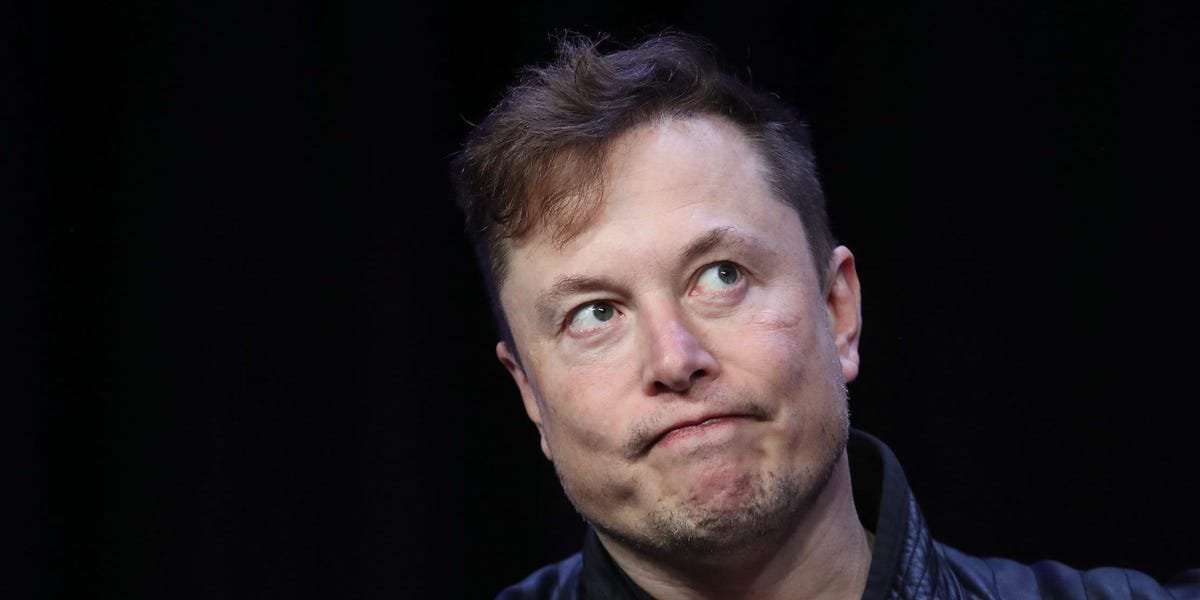Elon Musk said he didn't expect making a self-driving Tesla to be so difficult.
Musk said Tesla's latest full self-driving (FSD) software would arrive "soon," after the timeline slipped again.
"Didn't expect it to be so hard, but the difficulty is obvious in retrospect," Musk tweeted on Saturday.
Newsletter Sign up for the 10 Things in Tech newsletter for the latest trends & developments in tech. Loading Something is loading. Email address By clicking ‘Sign up’, you agree to receive marketing emails from Insider as well as other partner offers and accept our Terms of Service and Privacy Policy
Tesla CEO Elon Musk said on Saturday that making a self-driving car was harder than he expected, after the company's timeline for its latest Full Self-Driving (FSD) software slipped again.
Self-driving was a "hard problem" that "requires solving a large part of real-world AI," Musk tweeted.
"Didn't expect it to be so hard, but the difficulty is obvious in retrospect," he said.
He also said that the latest version of Tesla's FSD beta software would be shipped soon. "I swear!" he added.
FSD, which doesn't make a Tesla car fully autonomous, currently costs a one-off $10,000, and was released in beta to some Tesla owners in October. It has all the features of Tesla's Autopilot — which brakes, accelerates, and steers automatically — plus it allows cars to change lanes, park themselves, and recognize stop signs and traffic lights.
In July 2018, Musk said that Version 9 of FSD would be released in August of that year. He then said in 2019 that there would be "over a million cars with full self-driving" within a year, per The Verge.
The billionaire's latest timeline update for the FSD Version 9 release came in April, when he tweeted that he'd be surprised if the software arrived later than June.

mrblurface01 on July 7th, 2021 at 05:52 UTC »
Elon hasn't been to India. If he can make an autonomous self driving car work in india then it can work anywhere on earth
CV514 on July 7th, 2021 at 05:51 UTC »
Thanks businessinsider, relevance at it's finest.
manicdee33 on July 7th, 2021 at 01:27 UTC »
The short version, condensing the story from 2009 to today:
MobileEye provides basic lane keeping functionality which Tesla integrates as "AutoPilot" Tesla starts working on their own equivalent software, seeks access to the MobileEye hardware to run Tesla software, MobileEye packs their bags and leaves Tesla releases their own AutoPilot which starts off below the capability of MobileEye, but gradually improves over time Elon figures, "we have this sorted, there's a bit more AI to recognise traffic lights and intersections, but the hard part's done right?" Over time even the people telling Elon that it's not that easy realise it's not even as hard as they thought it was, and the problem is several levels more difficult because driving a car isn't about staying in your lane, stopping for traffic lights and safely navigating busy intersections. Tesla's system starts off with recognising objects in 2D scenes, works to 2.5D (using multiple scenes to assist in recognising objects) — but that's not enough. They now derive a model of 3D world from 2D scenes, detect which objects are moving — but that's still not enough. It turns out that driving a car is 5% what you do with the car and 95% recognising what the moving objects in your world are, what objects are likely to move, and predicting behaviour based on previous experience with those objects (for example Otto bins normally don't move without an associated human, but when they do they can be unpredictable — but you can't tell your software "this is how Otto bins behave" you have to teach your software, "this is how to recognise movement, this is how to predict future movement, and this is how to handle moving objects in general") [In the distant future] Now that Tesla has got FSD working and released, it turns out that producing a Generalised AI with human-level cognitive skills is actually much easier because they had to build one to handle the driving task anyway and all they need to do is wire that general AI into whatever else they were doing.